Pet a Robocat and Talk to R2D2: HSE Faculty of Computer Science Holds Robotics Fest
At the end of April, the HSE Faculty of Computer Science organised its first robotics festival. SBER was a partner of the event, which took place in the atrium of the HSE building on Pokrovsky Bulvar. Yandex and the National Association of Robotics Market Participants were the event's co-organisers. The guests attended lectures from industry experts and interacted with robots on interactive platforms.
Robotics developers presented 12 stands in the atrium, and more than 300 guests—including schoolchildren, students, HSE staff and anyone interested in humanity’s future with robots and artificial intelligence—attended the event.
The stars of the festival were the robots: guests could pet a robocat or talk to a copy of R2D2 from Star Wars. The participants could also join organised groups and listen to the robots’ creators talk about their developments.
Other exhibits included Yandex Rover (a delivery robot for transporting small parcels from Yandex), the PULSE collaborative robot designed to automate the work of industrial and commercial enterprises and research training projects, and an in-line robot for non-destructive testing and cleaning of complex branched sections of pipelines created by Rozum Robotics and TUBOT.
The Robotics Group and ALVI Labs represented the HSE Faculty of Computer Science at the fest. The following projects were developed by the Robotics Group: the CartPole robot (a pendulum with a metal rod that needs to be lifted and held up by left–right movements), the Truck (a small car that can move on autopilot), and the Whiteboard Bot (a robot that erases writing on a blackboard).
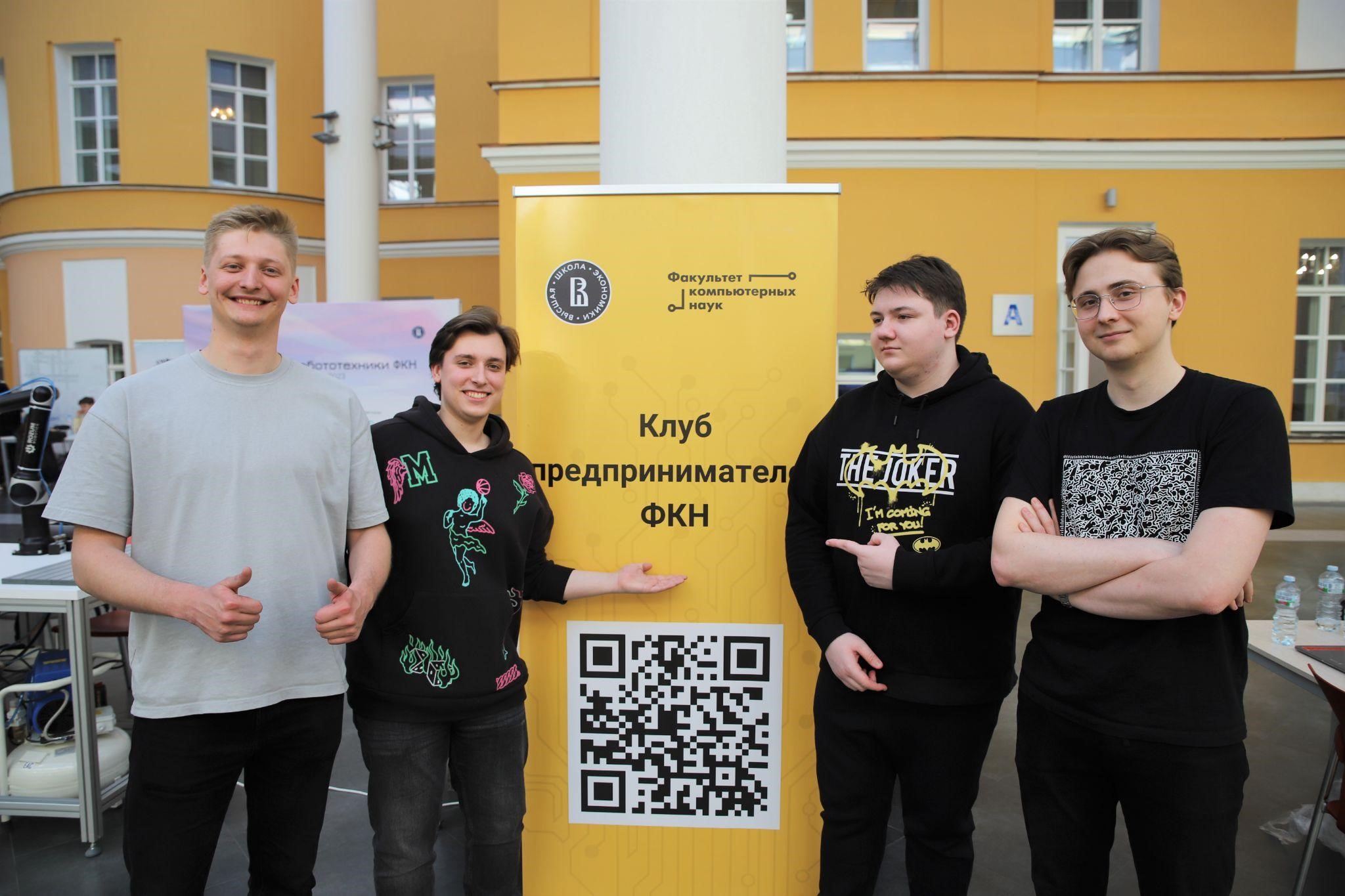
ALVI Labs is a member of the FCS Entrepreneurs Club. They are developing a motor interface for people who have had arms amputated. The interface presented at the festival can also be used to improve bionic prostheses.
Irina Plisetskaya, Deputy Dean for Development, Finance and Administration of the FCS, Vladimir Takh, head of the direction at the Sber Robotics Laboratory, and Olga Mudrova, Executive Director of the National Association of Robotics Market Participants, delivered a welcome speech at the festival. They spoke about the importance of robotics development and the challenges that developers face. They also noted that it is important to popularise robotics and organise such festivals.
The festival’s guests attended lectures on industrial and service robotics, drones, robots and much more. For example, Yandex spoke about autonomous driving technology, including robotaxis and robo-delivery, while SBER representatives talked about robotics in business now and its development in the future. Mikhail Vladimirov, domain leader at Sber Robotics Laboratory, also delivered a lecture.
The participants shared their impressions of the event:
Alexander Shirokovskikh
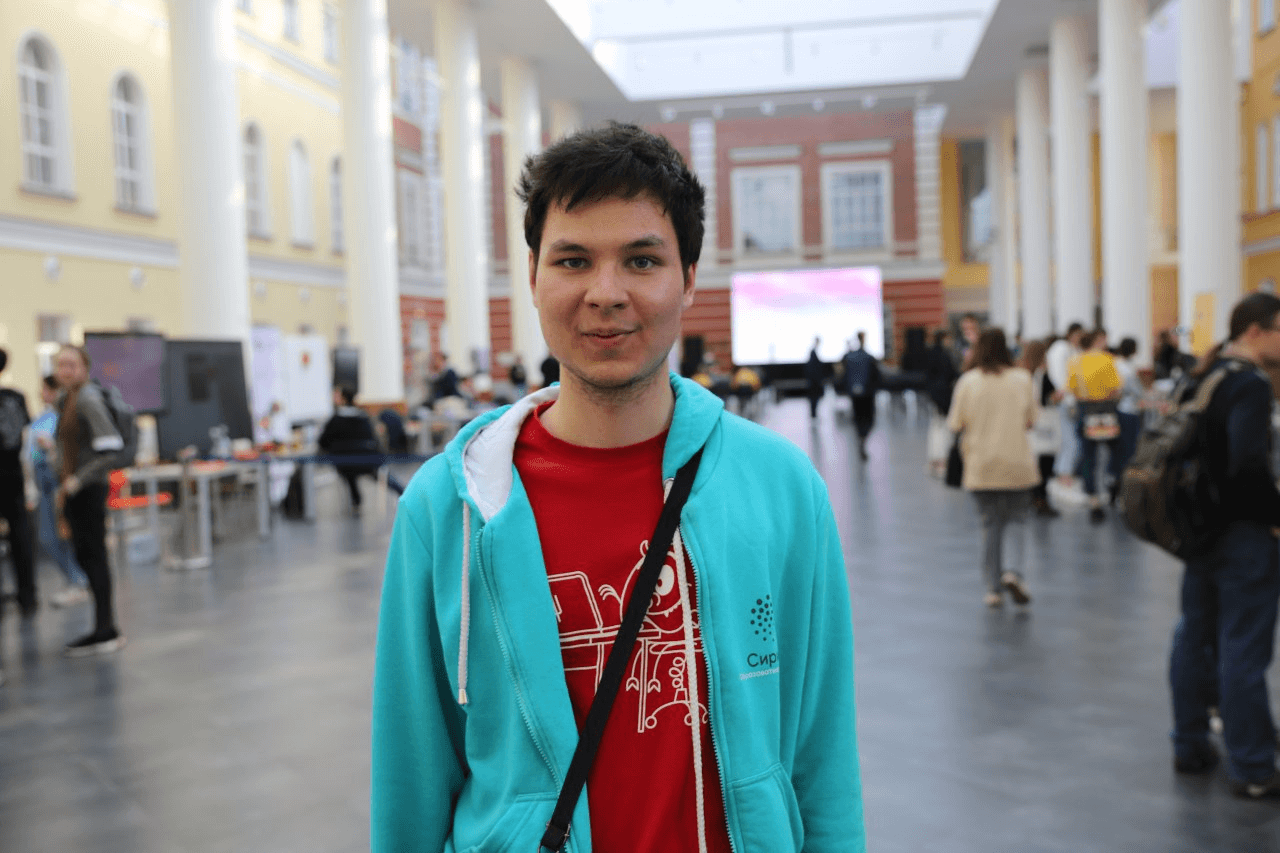
'I am an 11th-grade student at School No. 6 in Mytishchi. I am fond of robotics, so I decided to take part in this festival; it's interesting. I attended a lecture about self-driving taxis and Yandex robots. The SBER robocat and their robot that draws pictures generated by the Kandinsky image generator impressed me the most.'
Adrian Ryzhov, 6th-grade student, Kirill Ryzhov, engineer
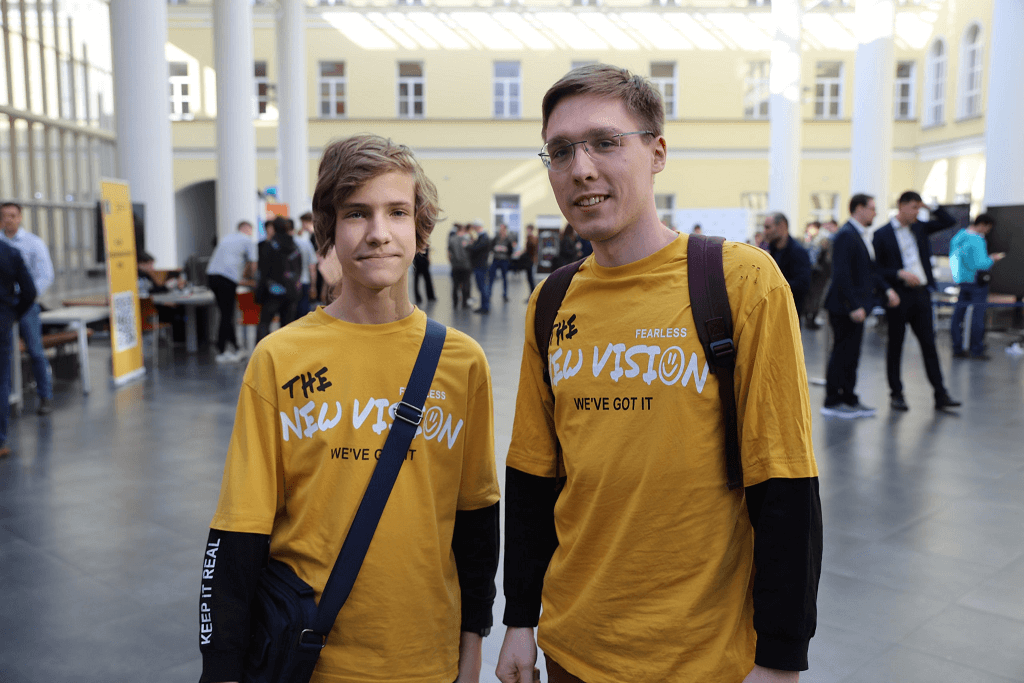
Kirill Ryzhov:
'There are a lot of speakers here; it is an interesting insight into the Russian market of industrial equipment and robotics. I am glad that this event was organised, and I hope that it will be held every year. We came here from the Moscow School of Programmers. I was interested in all the lectures on industrial equipment. I learnt about a lot of new Russian companies and realised that everything is developing quite well. I really liked it.'
Adrian Ryzhov:
'I am interested in Yandex self-driving technologies, robotaxis and robodelivery. I don't really understand robotics, and this is the topic I find the most interesting. It affects our lives.'
Stanislav Rozanov, CEO of TUBOT
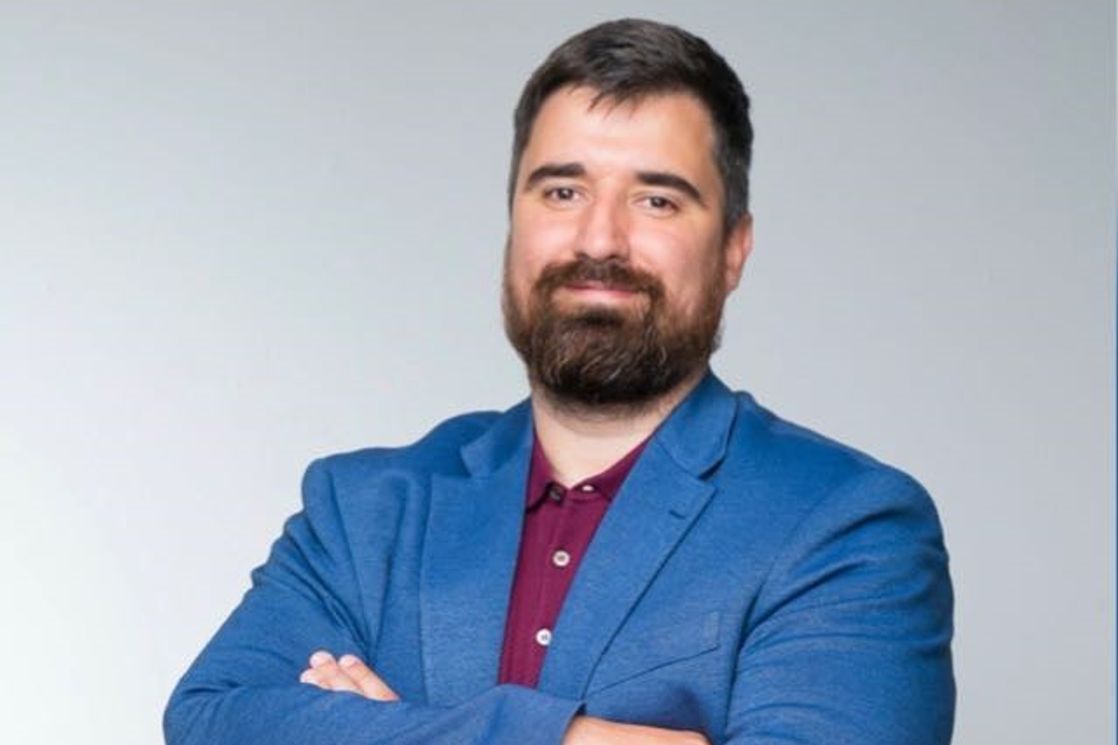
'TUBOT is a robotics company that develops and manufactures in-line robots—a complex technological product. This is the result of the work of designers, circuit engineers, electronics engineers, programmers, assemblers, CNC machine masters and other engineers whom Russia lacks. We are facing a shortage of personnel and decided to work closely with specialised universities to select graduate students in engineering-related fields for employment in our company. We are interested in the university's events related to student games, job fairs, specialised festivals and anything else designed to help students find employment, as well as popularising robotics.
The Robotics Festival organised by the HSE Faculty of Computer Science is a good example of interaction between business and students. This is our first experience this, and we find it successful; we noted real interest among students regarding working in our company. We want to thank the organisers for the opportunity to participate in this fest, share experience, demonstrate best practices and receive feedback, primarily from students who want to engage in robotics in the future.'
Irina Plisetskaya, Deputy Dean of the FCS
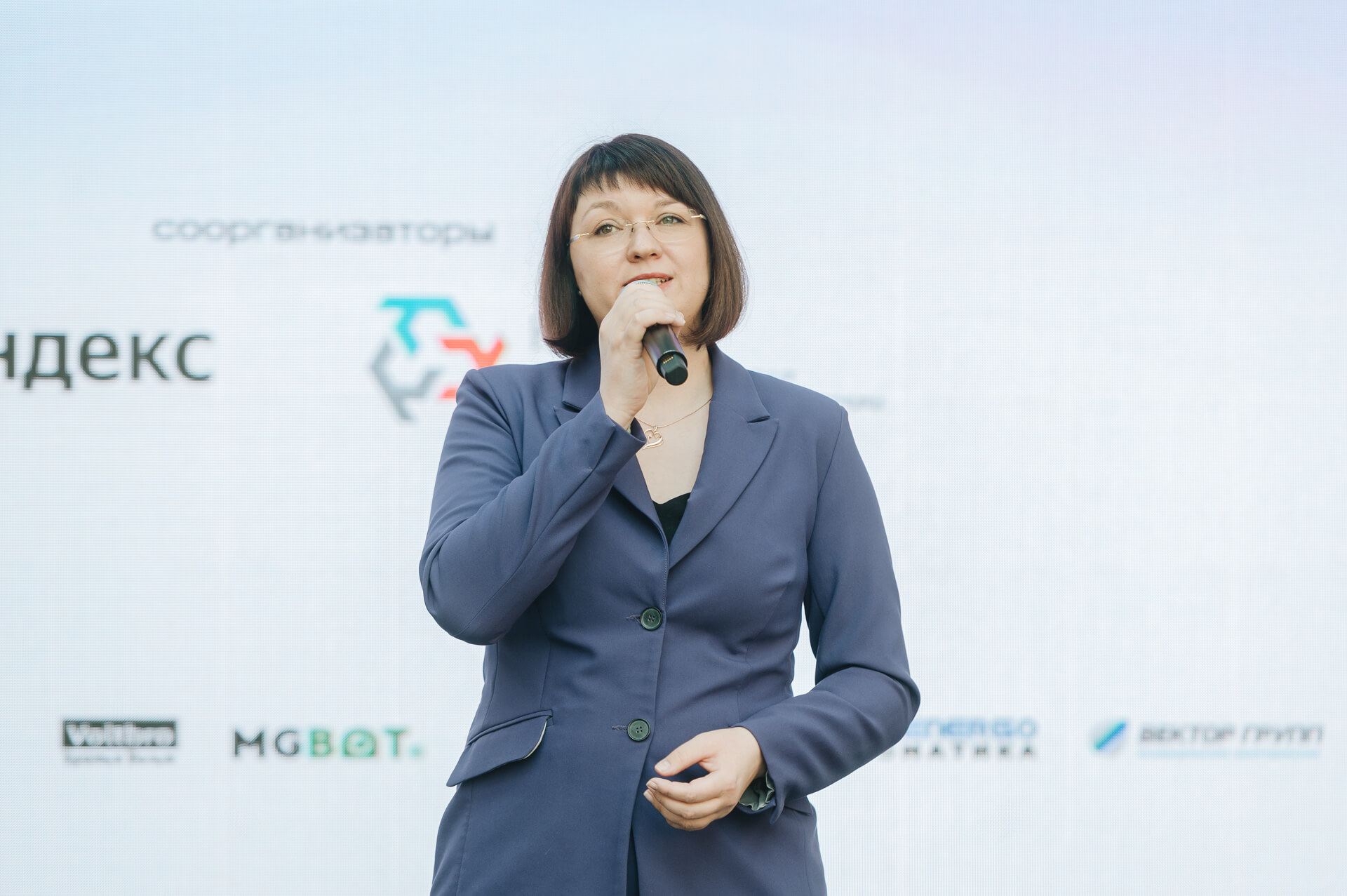
'This is the first time the Robotics Festival has been held by the Faculty of Computer Science, but I hope that the event will become a good tradition, an annual landmark event in HSE University life.
The festival programme turned out to be rich and interesting for undergraduates, doctoral students, and elementary school students alike. We invited 14 leading Russian companies in the robotics market and educational centres, who presented modern robots and delivered lectures. In addition, two teams from the faculty demonstrated their achievements: the FCS Robotics Group and the AlVI Labs team from the FCS Entrepreneurs Club. The teams were created by our graduate and doctoral students, which proves once again that FCS is a place where you don’t just study, but also make your ideas and dreams come true.
We are already thinking about the next festival, as it will be held in the year the FCS turns 10 years old. I would like to thank SBER, the partner of the festival, for supporting our endeavours, as well as the event co-organisers—Yandex and the National Association of Robotics Market Participants. I hope that next year we will gather again in the atrium on Pokrovsky Bulvar and present even more achievements in the field of robotics.'
See also:
‘In the Future, I Expect Rapid Development of Professions Related to Prompt Engineering’
The English-language programme of HSE Online ‘Master of Computer Vision’ will change its name to ‘Artificial Intelligence and Computer Vision’ in 2024. Andrey Savchenko, the programme academic supervisor, shares how the new name will affect the programme semantics, why AI has become the main federal trend in the field of information technology, and what tasks graduates will solve.
Artificial Intelligence as a Driver of Digital Transformation
In December, the HSE Institute for Statistical Studies and Economics of Knowledge and the HSE AI Research Centre participated in UNCTAD eWeek to discuss the future of the emerging digital economy. One of the topics discussed during the conference was artificial intelligence and its applications in driving the digital transformation of industry sectors. The session was co-organised by HSE University.
HSE University Receives Highest Grant under Priority 2030 Programme
HSE University has proved its leading position in the first group of the ‘Research Leadership’ field under the Priority 2030 programme. The university has also received the highest grant for teaching digital competencies to students, demonstrating its educational leadership in the fields of digital technologies and AI.
‘The Future Lies with AI Technologies and HSE University Understands That’
At the AI Journey 2023 international conference in Moscow, a ranking of Russian universities that train the best AI specialists was published. HSE University entered the A+ leadership group, taking first place according to such criteria as ‘Demand for hiring graduates’, ‘Quality of educational environment’, and ‘Activities for the development of school education’. Ivan Arzhantsev, Dean of HSE University’s Faculty of Computer Science, spoke to the HSE News Service about how AI specialists are trained at HSE University and what plans the university has in this area.
‘Every Article on NeurIPS Is Considered a Significant Result’
Staff members of the HSE Faculty of Computer Science will present 12 of their works at the 37th Conference and Workshop on Neural Information Processing Systems (NeurIPS), one of the most significant events in the field of artificial intelligence and machine learning. This year it will be held on December 10–16 in New Orleans (USA).
Specialists from the HSE Institute of Education Confirm GigaChat’s Erudition in Social Sciences
A multimodal neural network model by Sber, under the supervision of HSE University’s expert commission, has successfully passed the Unified State Exam in social studies. GigaChat completed all exam tasks and scored 67 points.
HSE University Students Win in the AIJ Science Competition at AI Journey 2023
The International Sber Conference of Artificial Intelligence, ‘AI Journey 2023’ recently took place in Moscow. Alexander Rogachev, doctoral student of the HSE Faculty of Computer Science, and Egor Egorov, an HSE 4th-year undergraduate student became the winners of the AIJ Science competition for scientific articles on artificial intelligence that was held as part of the event. The research was carried out under the umbrella of the HSE's Laboratory of Methods for Big Data Analysis (LAMBDA).
HSE University Hosts Fall into ML 2023 Conference on Machine Learning
Over three days, more than 300 conference participants attended workshops, seminars, sections and a poster session. During panel discussions, experts deliberated on the regulation of artificial intelligence (AI) technologies and considered collaborative initiatives between academic institutions and industry to advance AI development through megaprojects.
Child Ex Machina: What Artificial Intelligence Can Learn from Toddlers
Top development teams around the world are trying to create a neural network similar to a curious but bored three-year-old kid. IQ.HSE shares why this approach is necessary and how such methods can bring us closer to creating strong artificial intelligence.
‘My Research Has Evolved into A Broader and More Encompassing Vision’
Seungmin Jin, from South Korea, is researching the field of Explainable AI and planning to defend his PhD on ‘A Visual Analytics System for Explaining and Improving Attention-Based Traffic Forecasting Models’ at HSE University this year. In September, he passed the pre-defence procedure at the HSE Faculty of Computer Science School of Data Analysis and Artificial Intelligence. In his interview for the HSE News Service, he talks about his academic path and plans for the future.


